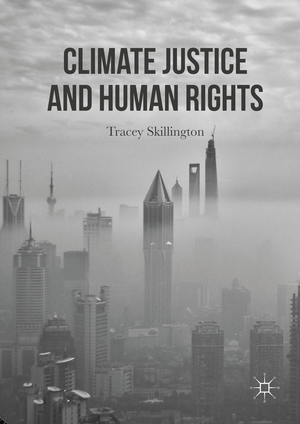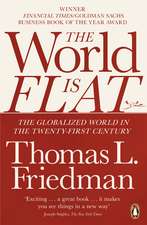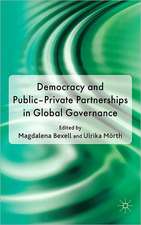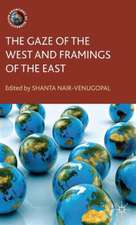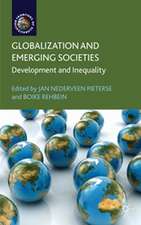Climate Justice and Human Rights
Autor Tracey Skillingtonen Limba Engleză Hardback – 26 noi 2016
Preț: 892.11 lei
Preț vechi: 1087.94 lei
-18% Nou
Puncte Express: 1338
Preț estimativ în valută:
170.71€ • 178.68$ • 142.08£
170.71€ • 178.68$ • 142.08£
Carte tipărită la comandă
Livrare economică 31 martie-14 aprilie
Preluare comenzi: 021 569.72.76
Specificații
ISBN-13: 9781137022806
ISBN-10: 1137022809
Pagini: 256
Ilustrații: VII, 287 p.
Dimensiuni: 148 x 210 x 22 mm
Greutate: 0.48 kg
Ediția:1st ed. 2017
Editura: Palgrave Macmillan US
Colecția Palgrave Macmillan
Locul publicării:New York, United States
ISBN-10: 1137022809
Pagini: 256
Ilustrații: VII, 287 p.
Dimensiuni: 148 x 210 x 22 mm
Greutate: 0.48 kg
Ediția:1st ed. 2017
Editura: Palgrave Macmillan US
Colecția Palgrave Macmillan
Locul publicării:New York, United States
Cuprins
1.Introduction .- 2. The Idea of Climate Justice .- 3. Resource inequalities, domination and the struggle to reclaim democratic freedoms .- 4. Climate Change and its security implications .- 5. Climate Justice without freedom - Legal and political responses to climate change and forced migration .- 6. On the rights of the peoples of dissappearing states .- 7. What is common about 'our common future'? Maintaining the human rights status of water .- 8. Conclusion - Towards a transnational order of climate justice.
Notă biografică
Dr. Tracey Skillington is Lecturer in Sociology at University College Cork, Republic of Ireland, where she had received her PhD in visual culture and the contemporary political spectacle. Her research interests include issues of justice that arise in relation to climate change and transnational memory projects. Recent publications include ‘Climate Change and the human rights challenge: extending justice beyond the borders of the nation state’ in The International Journal of Human Rights (2012), and ‘Perspectives on Climate Change’ in a special issue of the European Journal of Social Theory (2015) for which she was Editor.
Textul de pe ultima copertă
This book shows that escalating climate destruction today is not the product of public indifference, but of the blocked democratic freedoms of peoples across the world to resist unwanted degrees of capitalist interference with their ecological fate or capacity to change the course of ecological disaster. The author assesses how this state of affairs might be reversed and the societal relevance of universal human rights rejuvenated. It explores how freedom from want, war, persecution and fear of ecological catastrophe might be better secured in the future through a democratic reorganization of procedures of natural resource management and problem resolution amongst self-determining communities. It looks at how increasing human vulnerability to climate destruction forms the basis of a new peoples-powered demand for greater climate justice, as well as a global movement for preventative action and reflexive societal learning.
Caracteristici
Examines the idea of climate justice in the international community, and highlights society's changing view of climate change Focuses on the legal ramifications of climate change, from the rights of displaced peoples to the human right to water access Calls for action on an international level against climate change and discusses the future of community-led climate initiatives
